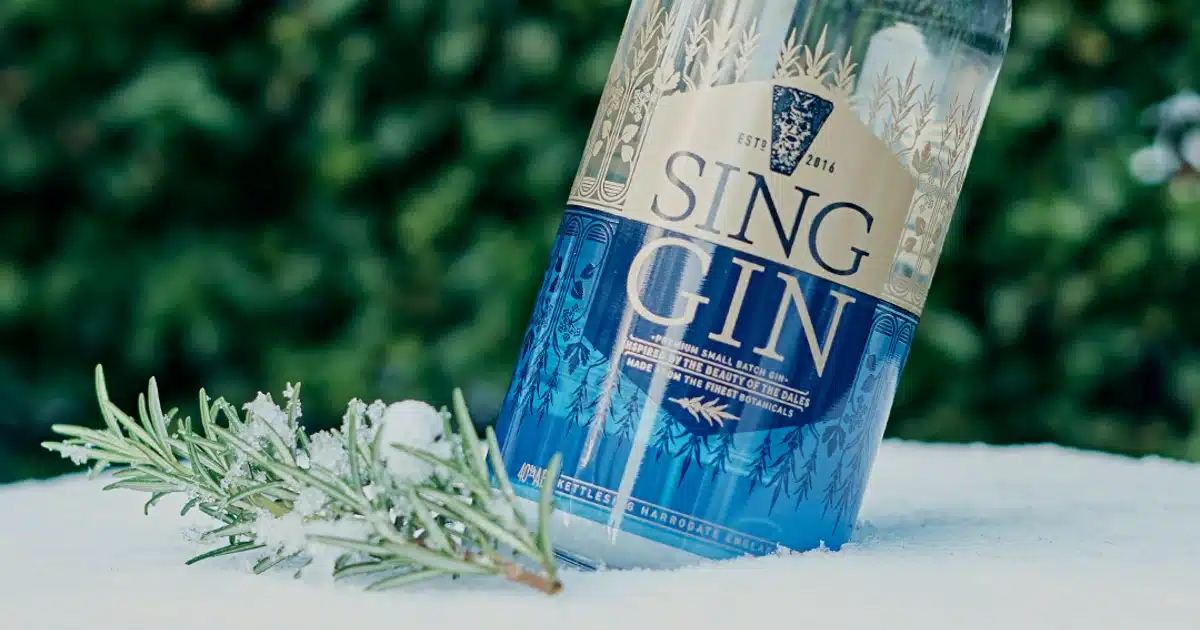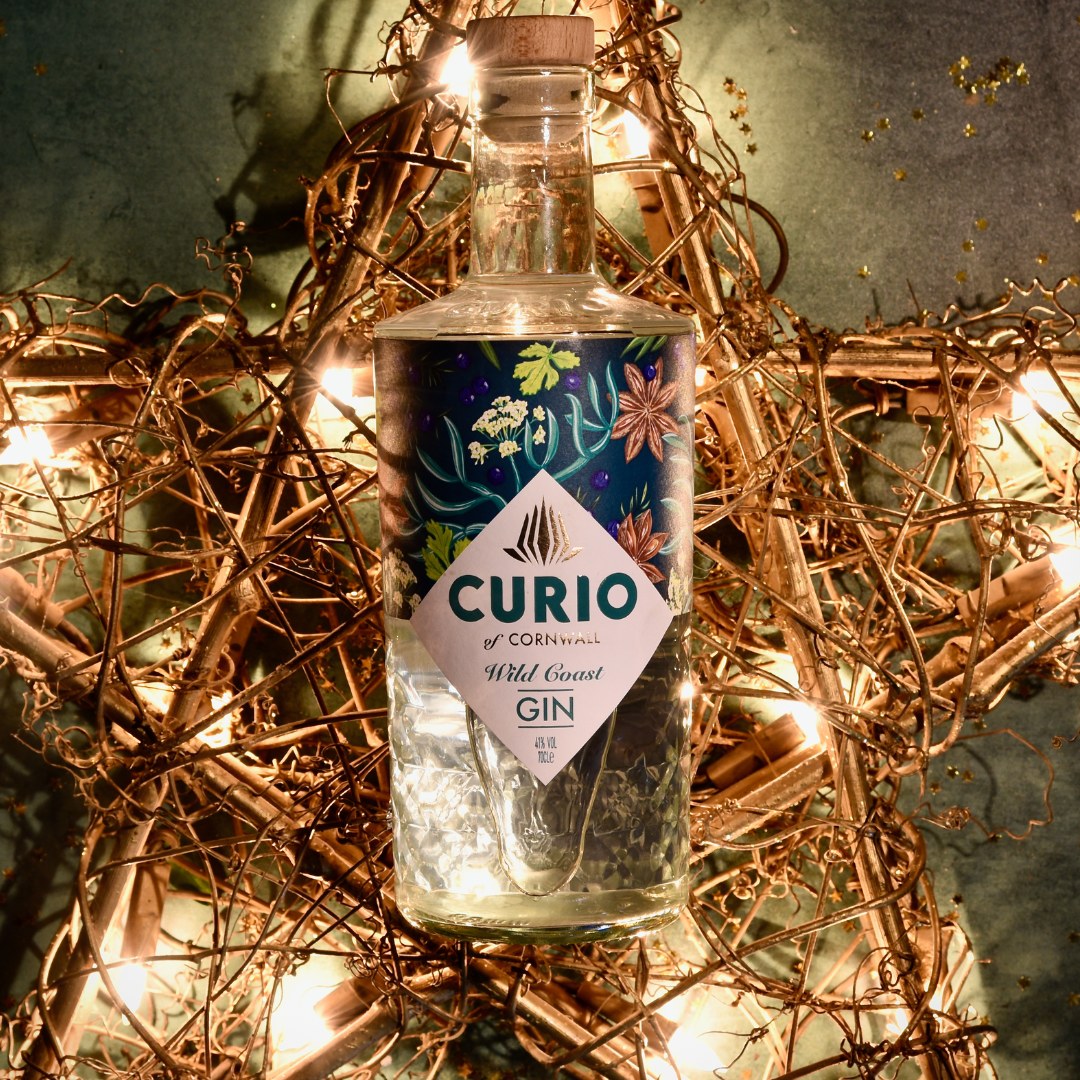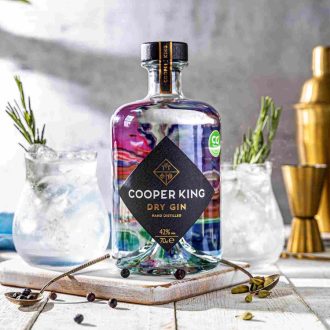

Sing Gin PO BOX 823, Harrogate, United Kingdom, HG1 9XL


Sing Gin Fine Quality Spirit out Harrogate
Sing Gin Fine Quality Spirit out Harrogate

Our Story
Beauty Bottled
From still to sip, every drop of Sing Gin reflects our belief in the life-affirming power of natural beauty. The natural beauty of Yorkshire in particular. We the founders live in Kettlesing village deep in the Yorkshire Dales. This ‘area of outstanding natural beauty’ inspired our gin’s elegantly uplifting character and our Sing name. The dream was to create a family legacy to celebrate my beloved Yorkshire that could also pass down the generations. My twin sons James and Richard are on-board and my wife and the boys’ mum, Caron, enjoys the tasting sessions.
We hope you do too. Cheers.

Sing Origins

Whatever You Make, We Say Make It Beautiful.
From still to sip, every drop of Sing Gin reflects our belief in the life-affirming power of natural beauty.
As a family business, we take our craft seriously. We even have our own muse. The Yorkshire Dales. The Dales is our home, and being surrounded by so much awesome natural beauty moved us to create Sing Gin (named after the historic village of Kettlesing where we live).

Crafting A Beautiful Gin Is Only Half The Story.
The real challenge was capturing the spirit of the Dales in mood, method, ingredients and flavour. It’s there in our branding too. Our decorative brand design was inspired by Fountains Abbey and its tranquil water garden – we love this place and visit regularly to walk, relax and clear away the cobwebs. Look closely at the bottle label and you’ll see the fearsome gargoyle from the water garden protecting our secret recipe.

A Dream And A Legacy.
Sing Gin came to be because Ian our founder dreamed of creating a family legacy. Not any ordinary legacy though. Ian wanted to honour and celebrate his beloved Yorkshire Dales with something that could pass down the generations. His twin sons Richard and James are now closely involved in the gin-making, while his wife and the twins’ mum, Caron, enjoys the tasting sessions. We hope you do too. Cheers.

The Sing Way
We all need a bit of encouragement in life! These are the values that guide and
inspire us to consistently produce our glorious gin to a meticulously high standard.
Craft
Life is better when things are beautiful. For us, this comes down to craft. Everything we make and do, from our choice of botanicals to our classical methods, is led by our artisanal eye, our close attention to detail, and this old chestnut, ‘If something’s worth doing, it’s worth doing right.’
Authenticity
Being true to yourself and doing things you believe in, with integrity. That’s what authenticity means to us. We’re always as good as our word. And we treat our people and our gin with the utmost care and respect. It’s the simplest way and it’s the best way.
Family
As a family business, family means everything. It’s about love and it’s about people. We regard everyone we work with and make gin for as part of our family, and our reputation is built on these strong connections. Just as our gargoyle protects our gin recipe, we protect and nurture our relationships. We’re nothing without them.


Tasting Notes
Distilled in small batches, our blend of seven beautiful botanicals harmonise to
create a rare and tantalising freshness with distinct floral undertones.

On The Nose
We have pronounced juniper
followed by slight sweet and
citrus notes with a hint of
spice, and floral after-tones.


On The Palate
We have a big flavoured gin with lots
of juniper balanced with slight sweet
notes and a long finish, leaving a
subtly pleasurable tingle on the
edges of the tongue.


Distilled In Kettlesing
Sing Gin is made in the Dales village of Kettlesing. We let the botanicals steep overnight inside Bella, our steel and copper still (named after our first family dog). Then we distil the grape spirit and botanicals in 50-litre batches. Small batches offer higher quality control. Four hours later, we have our beautiful gin.

Crushed By Hand
Juniper, mint, orange peel and flax are among the seven top-quality botanicals we use. Flax is especially dear to us for being a historic Yorkshire crop, and we grow the flax ourselves. Rather than using whole botanicals, we crush all ours by hand with a large mortar and pestle. Extracting the oils in this way helps us achieve our signature strength of flavour and aroma.
Grape Over Grain
We craft Sing Gin from grape-based spirit rather than grain. Grape delivers a silky smoothness that, in our opinion, grain can’t quite match. Grape was actually an ingredient in the world’s very first juniper spirits back in the 13th century, so it’s a nice nod to tradition.

OUR DISTILLERY Three minutes…
That’s how long our commute to work is. Having our very own distillery in the Dales village of Kettlesing means we control every nuance of our
gin-making, from the crushing of the botanicals through to the bottling.
The views aren’t bad either.




Does Gin Freeze?
A lot of people are confused about whether it’s safe to freeze gin. As a small batch craft gin maker, we know the stuff inside out – so we’ve put together this handy guide to freezing gin and other types of alcohol.
Who doesn’t love a gin hamper? The perfect gifts for drinkers of gin, our hampers rise to any occasion – from birthdays to anniversaries, congratulations to new homes, Christmas or just to say thank you. Discover our range of luxury gin hampers here.
Can you freeze gin?
The short answer is no, not unless you have some liquid nitrogen on hand. Gin doesn’t freeze because its ABV (that’s its ‘alcohol by volume’ level) is at least 37.5% – which is too high to turn into ice in the temperatures an average household freezer can achieve.

Normal household freezers typically have a temperature no lower than –23ºC to –18ºC, which is nowhere near cold enough to freeze gin.
However, you should still store your gin in the freezer! As the temperature drops, the viscosity (thickness) of a liquid increases, improving the texture of the gin. This is especially true for premium gins like ours.
Some of the world’s best cocktail bars, like Dukes Bar in London, keep their gin in the freezer along with martini glasses and they pride themselves on making the perfect gin martini.
An added bonus of putting gin in the freezer is that this storage solution keeps it away from heat and light – the two things that can ruin any spirit.
In fact, our grape-based gin tastes even better when served ice cold, straight from the freezer. It’s so smooth in fact, that you can even drink Sing Gin neat.
Tips for freezing gin
To store gin in the freezer safely, ensure the lid is screwed on tightly. You don’t want any spillages – gin is far too precious to waste.
If you’re storing Sing Gin in the freezer, you just need to make sure the natural, environmentally-friendly cork stopper is fitted snuggly into the neck of the bottle. Be sure to wet the cork first by tipping the bottle at an angle – this way there’s no chance of it drying out and affecting the liquid. Any liquid with a natural cork stopper should be stored upright, ideally.
When keeping your gin in the freezer, keep it away from any foods. This prevents it from picking up smells.
If your gin has been stored at room temperature, it will need at least an hour in the freezer to get to the perfect cold temperature.
To prolong the superior mouth feel of gin that has been kept in the freezer, serve in a chilled glass with lots of ice. Don’t worry, the ice won’t dilute the gin – it just lowers the temperature of your drink and helps it stay colder for longer, so you get to enjoy every last sip. We recommend adding your favourite gin garnish and mix your spirit with a delicious gin mixer for the full experience.
Before you place your gin in the freezer, be sure to check the alcohol content. Some gin-based drinks including pre-mixed cocktails might have a high water content and this will make them freeze easier. You might end up with a slushy consistency – but that isn’t always a bad thing!
Of course, if there’s no room in the freezer you can store your gin in the fridge instead.
How long can you freeze gin?
Putting your gin in the freezer doesn’t ruin the gin. In fact, it’s the best way to maintain the quality of the spirit. You can keep gin in the freezer as long as you like. However, you must ensure it’s in an airtight bottle as oxygen can impact the taste of the spirit. Read our guide to storing gin for more information.
Gin bottles won’t explode in the freezer!
Can you refreeze gin?
No – it’s impossible to freeze good gin once, so you definitely can’t freeze it twice! That being said, there’s no problem with popping your ice cold gin back into the freezer once you’ve poured the perfect gin and tonic.

Why did my gin freeze?
If you’ve stored your gin in the freezer and you find it has taken on a slushy consistency, the reason is that the gin has a water content that is too high. Water freezes at 32 degrees, a much higher point than alcohol – so the water will be frozen but the alcohol won’t be. Gins with a higher water content like this should be kept in the fridge instead.
What alcohol can you freeze?
In addition to gin, other types of alcohol with a high ABV cannot be frozen in your kitchen freezer. This includes spirits like vodka, rum, tequila and whisky. Like gin though, that doesn’t mean you shouldn’t store them in the freezer! Many spirits are best served chilled.
Vodka consists primarily of water and ethanol. Pure water has a freezing point of 0ºC or 32ºF, while pure ethanol has a freezing point of -114ºC or -173ºF. Because it’s a combination of chemicals, vodka doesn’t freeze at the same temperature as either water or alcohol.

Putting a warm can of beer or wine in the freezer to chill it for a short period or so is a good idea – just don’t forget about it!
Beer and wine will freeze in a home freezer because they contain much lower levels of alcohol than distilled spirits. Beer is typically 4-6% alcohol (sometimes as high as 12%), while wine tends to be around 12-15% ABV.
Wine is 85 to 90 percent water, so it freezes at about -6.7 C — the water freezes first at zero C. Never store bottles of wine in the freezer. Decant your wine into plastic containers or bags instead. Water expands when it freezes, so the pressure could cause the wine bottle to crack and the cork to be pushed out.
Beer, which is mostly water, should not be frozen. If you forget about a can or bottle in the freezer for a day or two, the water could expand enough to pop the bottle tops or explode the cans.
Every type of alcohol has its own freezing point, and it changes depending on what it’s mixed with and the container it’s stored in. The freezing point varies depending on the spirit’s proof, or alcoholic concentration, which is double its alcohol percentage.
The higher the proof of a given alcohol, the lower the freezing point — in other words, higher alcoholic concentration makes a spirit harder to freeze.
In short, gin is best kept in the freezer. Give it a go and let us know what you think!








